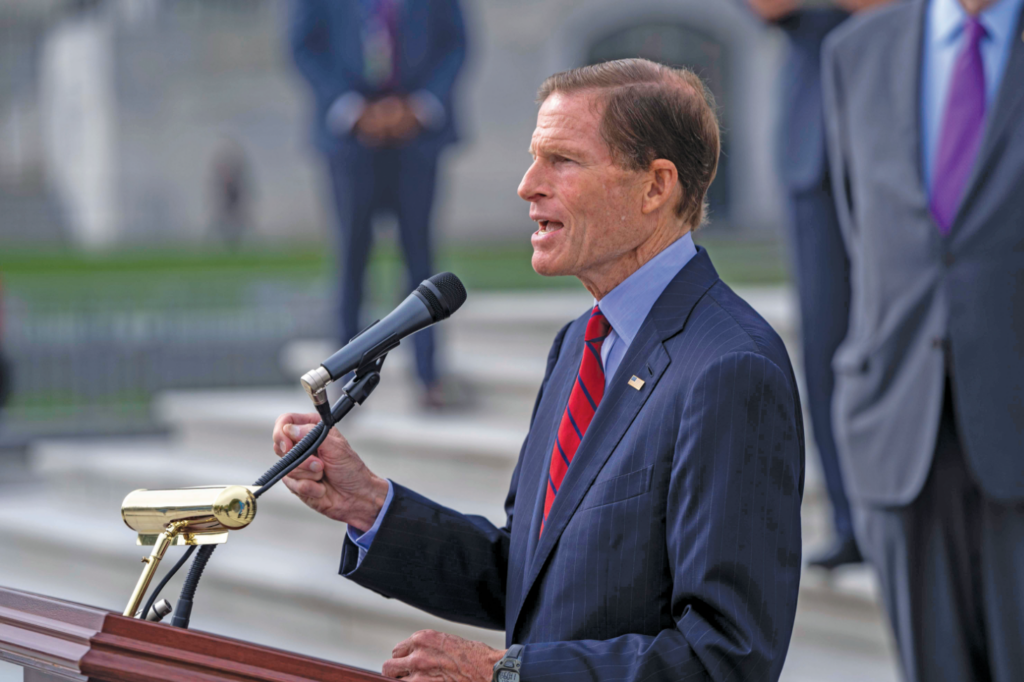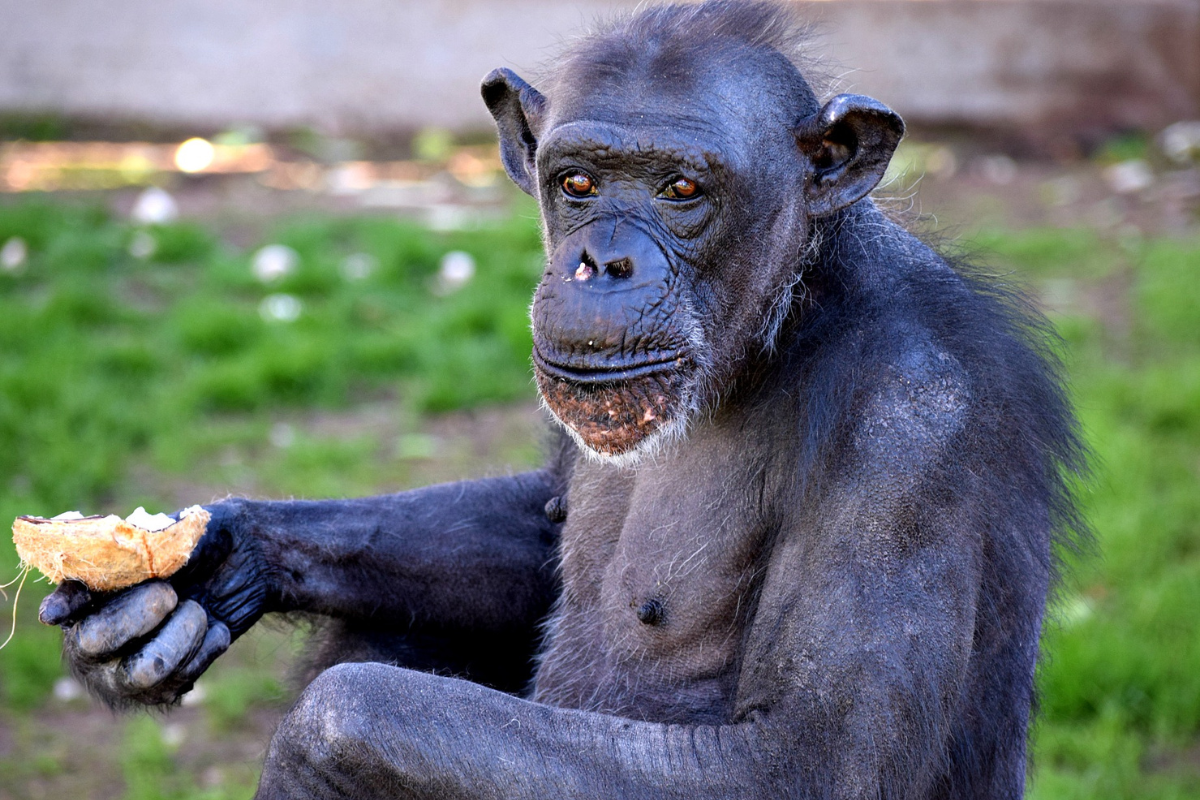By Nicole Rivard
Primarily Primates resident chimpanzee Buffy was purchased as a pet for a little girl in 1974. When Buffy was only three years old, she was sold to the Buckshire Corporation, which bred chimpanzees and leased them to research labs and the entertainment industry.
In 1996, she arrived at PPI, which Friends of Animals has managed since 2007, terrified of new people. However, now she is outgoing and enjoys being around care staff and the other chimps in her group—Buck and April.
Patas monkey Lennie came to PPI in October 2013 after also being kept as a pet. His owners surrendered him to a zoo when they moved to another state where private possession of monkeys was prohibited.
Lennie was not provided with the care he needed while he was a pet. Patas are the fasting running primate– they have been known to reach speeds as high as 35 mph—and need space to stretch their legs. Thanks to PPI, Lennie now has that opportunity and is always on the move. He loves running along the side of his habitat; his favorite enrichment items are basketballs, bright colored toys and his giant caterpillar stuffed animal.
“A staggering 100 of our 199 primates at PPI are ex-pets,” said Krystal Mathis, executive director of PPI. “Most of our spider monkey and capuchins are ex-pets, as well as a large percentage of our lemurs. Even a significant number of our macaques, chimps and other old-world primates are former pets who were shipped off to research once they became too ‘aggressive’ to care for.”
Typically, the animal starts to bite, or picks up a nervous habit, like self-harming or feverishly pacing in the cage, or screaming. Non-human primates are most often abandoned by their owners between the ages of two and eight (depending on the species) after they have started maturing, and sometimes after their owners have had their teeth removed to restrict their assertive personalities.
While U.S. federal quarantine regulations forbid importing non-human primates as pets, there are no federal laws in the U.S. banning primate ownership or exotic animal ownership in general. Thirty-one states prohibit private possession of some or all primate species as pets. However, primates are easily obtained on the internet and through out-of-state dealers and auctions.

But the tide finally seems to be turning for primates thanks to U.S. Senator Richard Blumenthal, who has introduced the Captive Primate Safety Act. The legislation would prohibit interstate commerce and private ownership of monkeys, apes and other primates.
“There are countless stories of mistreated and tortured primates who belong in the wild not in someone’s backyard or home,” Blumenthal said. “People imagine primates can be made pets like dogs or cats, but they have natural wild instincts that cause them to behave a certain way not compatible with the life of a pet.
“They are animals of the wild and that’s a beautiful thing. It shouldn’t be taken for granted. Too many people are complacent or ignorant about it.”
He points out that the bill will do more than alleviate the suffering these intelligent, social animals endure, it will protect the public as well. There have been several high-profile incidents of pet primates attacking humans.
Since 1990, more than 280 people have been injured by captive primates, and many more incidents likely went unreported.
CT tragedy unforgettable
Blumenthal said the 2009 tragedy in which Charla Nash was attacked by a chimp that was kept as a pet by her friend who lived in Stamford, CT, was in the back of his mind working on this legislation.
Nash was given one of the world’s first face transplants, which was a success, but the chimpanzee attack transmitted a disease to her eyes and left her blind.
“It happened in my hometown,” Blumenthal recalled. I knew a lot of people that knew Charla Nash. I spoke to her. It was a tragedy. How could anyone forget it?”
Blumenthal is bolstered by President Biden signing the Big Cat Public Safety Act last December, which prohibits the private ownership of tigers, lions, leopards and other big cats as pets while restricting contact between the public and these apex predators for things like selfish selfies.
“The cause of animal rights and animal welfare has burgeoned. People are so much more aware of it now,” Blumenthal said. “Frankly what I find is people are learning a lot from their kids. For some reason, maybe because there are more nature shows and documentaries portraying wild animals in their natural habitats, I think kids today are more inclined to question seeing an animal confined when it should be out in the wild.”
Blumenthal said people can help get the Captive Primate Safety Act across the finish line by calling and writing their U.S. Senators and telling them to co-sponsor the bill.
“We need more bipartisan support. We didn’t have any Senate Republicans sponsoring it last time,” he said.
“Getting this bill signed into law should be a passion for everyone. I truly believe that the measure of who we are as human beings is in part how we treat animals. There is no good argument for delaying this bill.”

